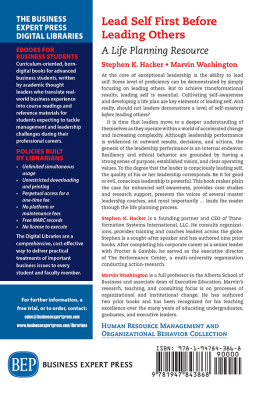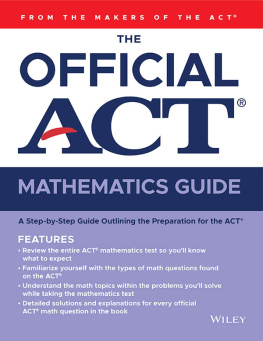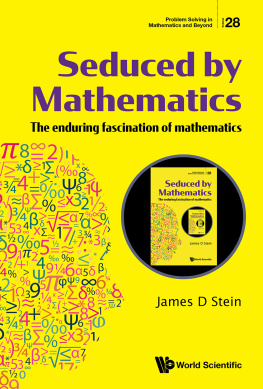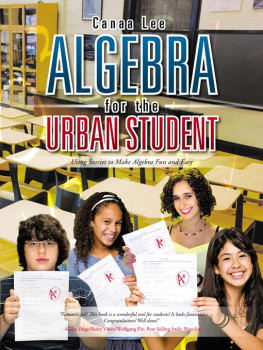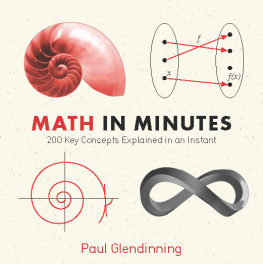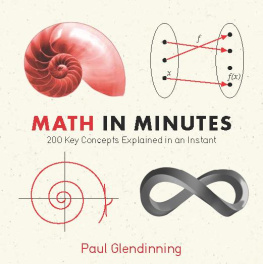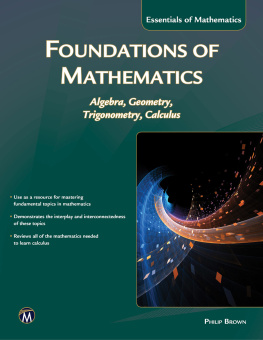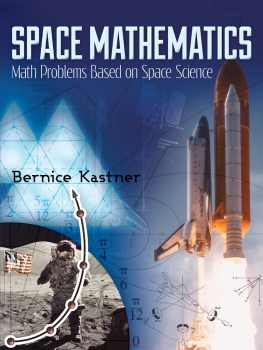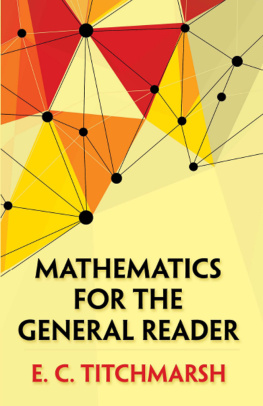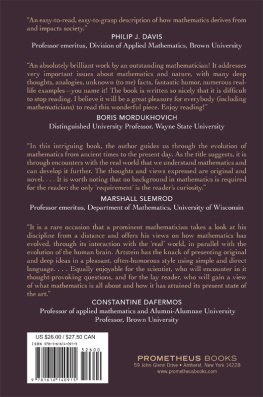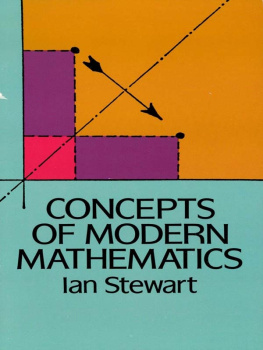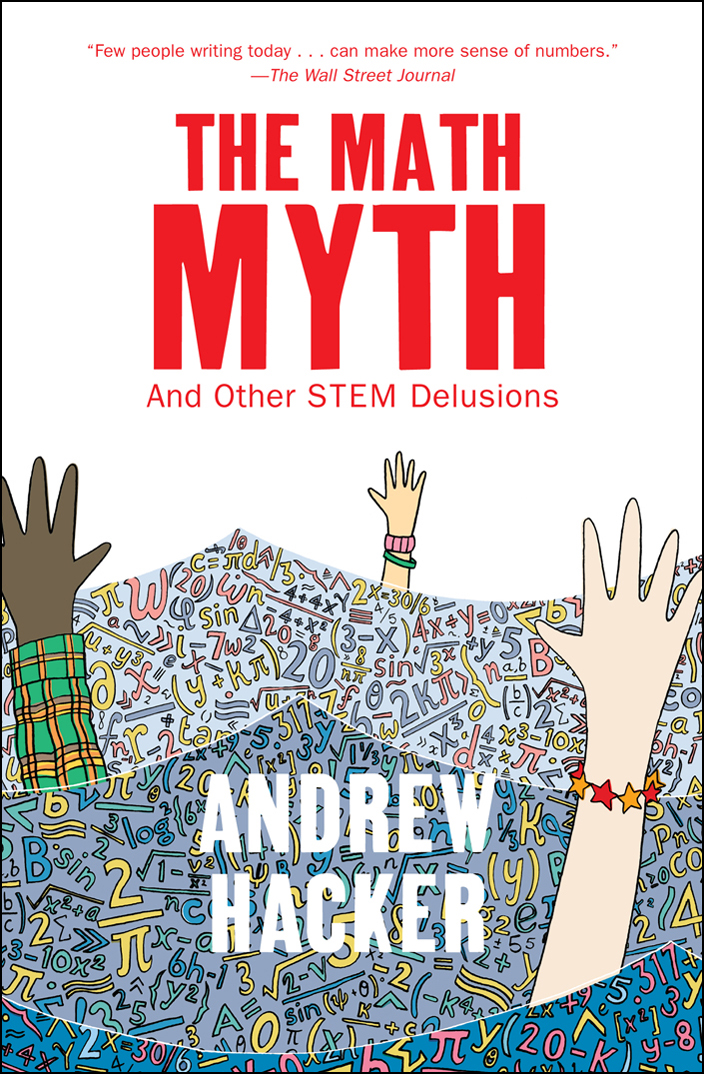THE MATH MYTH
Also by Andrew Hacker
Higher Education? (with Claudia Dreifus)
Mismatch: The Growing Gulf Between Women and Men
Money: Who Has How Much and Why
Two Nations: Black & White, Separate, Hostile, Unequal
The End of the American Era
Political Theory: Philosophy, Ideology, Science

2016 by Literary Ventures, Inc.
All rights reserved.
No part of this book may be reproduced, in any form, without written permission from the publisher.
Drawing on page 58 by Whitney Fielding
Requests for permission to reproduce selections from this book should be mailed to: Permissions Department, The New Press, 120 Wall Street, 31st floor, New York, NY 10005.
Published in the United States by The New Press, New York, 2016
Distributed by Perseus Distribution
LIBRARY OF CONGRESS CATALOGING-IN-PUBLICATION DATA
Hacker, Andrew.
The math myth: and other STEM delusions / Andrew Hacker.
pages cm
Includes bibliographical references and index.
ISBN 978-1-62097-069-0 (e-book) 1. MathematicsStudy and teachingSocial aspects. 2. Mathematical ability. I. Title.
QA11.2.H35 2016
510.71--dc23
2015022370
The New Press publishes books that promote and enrich public discussion and understanding of the issues vital to our democracy and to a more equitable world. These books are made possible by the enthusiasm of our readers; the support of a committed group of donors, large and small; the collaboration of our many partners in the independent media and the not-for-profit sector; booksellers, who often hand-sell New Press books; librarians; and above all by our authors.
www.thenewpress.com
Book design by Bookbright Media
Composition by Bookbright Media
This book was set in Minion Pro and Gotham
Printed in the United States of America
10 9 8 7 6 5 4 3 2 1
For Robert B. Silvers and the Memory of Barbara Epstein
Table of Contents
Guide
CONTENTS
THE MATH MYTH
This century finds America in a struggle to preserve its pride and prestige. Almost daily, evidence accrues that the United States lacks the resources to reign over world affairs. Even minor countries feel free to display their disdain. The years 1900 through 2000 were recognized as Americas century. In its first half, we led the world in manufacturing and living standards. In the second, we surpassed in education and military might. But the era ahead holds no comparable promise. Other countries are already matching us in ability, efficiency, and vigor.
For example, we are warned:
In less than fifteen years, China has moved from 14th place to second place in published research articles.
General Electric now has most of its R&D personnel outside the United States.
Only four of the top ten companies receiving United States patents last year were firms based in this country.
The United States ranks 27th among developed nations in the proportion of undergraduate degrees in science or engineering.
Hence the search for solutions to arrest incipient decline. Piled on my desk are reports from august committees and commissions bearing titles like The Gathering Storm, Before Its Too Late, and Tough Choices or Tough Times. All call for national revival and renewal. Its revealing that we hear no worries that the United States may lag in literature or the arts, or that no concern is voiced over declining enrollments in philosophy and anthropology. Rather, the focus is on the now well-known acronym STEM, symbolizing competences the coming century will ostensibly require. We must, we are counseled, devote more of our minds, careers, and resources to science, technology, engineering, and mathematics.
Even a decade ago, the Business Roundtable was urging that we double the number of science, technology, engineering, and mathematics graduates with bachelors degrees by 2015. Weve passed that year, but awards in those fields have barely budged. More recently, a panel appointed by President Barack Obama asked for another ten-year effort, this time to add one million additional college graduates with degrees in science, technology, engineering, and mathematics. Where the missile race tallied nuclear warheads, now the countdown is STEM diplomas.
THE SOLUTION: AZIMUTHS AND ASYMPTOTES
Indeed, mathematics is the linchpin, heralded as the key to the other three. Thus were told that if our nation is to stay competitive, on a given morning all four million of our fifteen-year-olds will be studying azimuths and asymptotes. Then, to graduate from high school, they will face tests on radical notations and elliptical equations. All candidates for bachelors degrees will confront similar hurdles. Mathematics, we are told, will armor our workforce in a merciless world. Its skills, we hear, are foundational to innovation and a lever in the international arena. In an age of high-tech weaponry, azimuths can turn the tide more than human battalions.
On these critical fronts, our young people are no match for their agemates across the globe, with American mathematics scores lagging behind even Estonias and Slovenias. A Harvard study calculates that if this shortfall persists, our gross domestic product will drop by 36 percent. The American Diploma Project reports that proficiency in algebra will be needed in 62 percent of new jobs in the decades ahead. We are further warned that theres already a shortage of graduates with STEM skills. As a result, vital work is being sent abroad, or credentialed immigrants are enlisted to fill the vacancies. If coming generations want a quality of life they feel is their due, they must be prepared to master what many find the most difficult of all disciplines.
Back in 1841, a Scotsman named Charles Mackay (its his spelling) published a book called Extraordinary Popular Delusions and the Madness of Crowds. He showed how hoaxes, frauds, and hallucinations come in varied guises, from stalking witches to marching off to wars. In more sophisticated times, delusions must show a surface plausibility if they are to ensnare an ostensibly educated populace.
Among our eras delusions are the powers ascribed to mathematics, spurred by a desperate faith in skills abbreviated by the STEM acronym. Together, they have animated a major mythology of our time. Like all myths, they start with a modicum of truth and can be beguiling on first reading. In the chapters ahead, I will show why these beliefs, even when sincerely held, are wholly or largely wrong, lacking in factual support, and usually based on wishful logic. More consequential, these illusions and delusions are already taking a heavy toll on this country, most markedly on the humane spirit that has made America exciting and unique.
FEARED AND REVERED
The Math Myth began nearly twenty years ago, when I started making notes, conducting interviews, and collating files. For much of the time, it had an intermittent schedule, competing with other projects. This changed in 2012, when editors at the New York Times heard about what I was up to and asked me to write an opinion article on mathematics. Responses poured in, at close to record levels, which told me it was time to finish the book. So I did, and here it is.
I mention the early beginning because even with the passage of years much of the terrain remains unchanged. Interviews conducted at the outset remain fully relevant today, as are facts and figures I amassed. If anything, myths about mathematicsthe central subject of this bookhave become more entrenched. This is why I believe that



